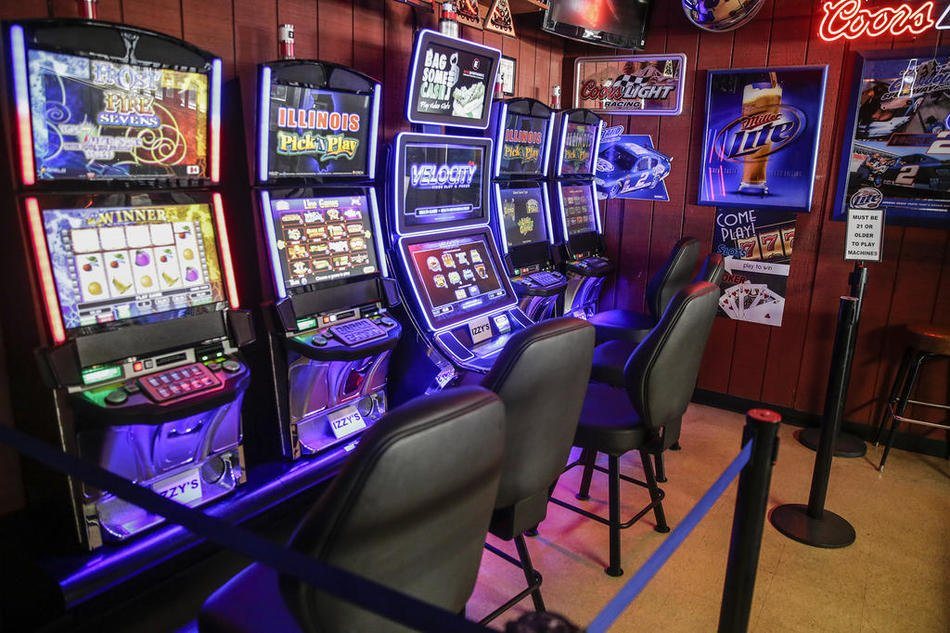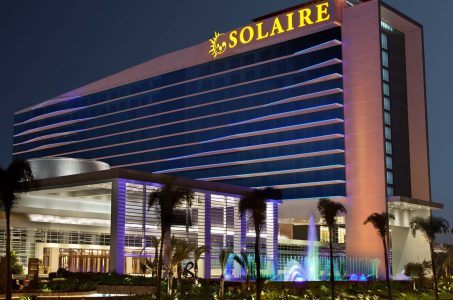Illinois Video Gambling Terminals Generate More Tax Revenue Than Riverboat Casinos
Posted on: October 21, 2017, 02:00h.
Last updated on: October 21, 2017, 11:33h.
Video gambling terminals (VGTs) inside Illinois bars and eateries where liquor is served delivered $296 million in tax revenue to state coffers during the most recent fiscal year.
That outpaces the state’s 10 riverboat casinos, which generated just $270 million for the Springfield capital.

It’s the first time VGTs have produced more income for the state since the machines were authorized five years ago. The financial statistics were released this week by the Illinois Commission on Government Forecasting and Accountability.
Any establishment licensed to serve alcohol for on-site consumption located in a municipality where video gambling machines are permitted can house up to five VGTs. Notably, the City of Chicago doesn’t participate in allowing bars and restaurants to incorporate the wagering devices.
The gambling expansion has unquestionably hurt riverboats. In the 2012 fiscal year, the final period before VGTs spread across the state, casinos sent tax checks to the state totaling $340 million.
“The market is oversaturated and revenues are just shifting from one spot to another,” Illinois Casino Gaming Association Executive Director Tom Swoik told the Daily Herald. Swoik’s organization lobbies the state legislature on behalf of five member riverboat casinos.
State Proceeds Increase
Despite receiving less money from riverboats, state coffers took in the most money in wagering taxes in a decade. Illinois collected $1.31 billion in gaming taxes, up 7.9 percent on 2016. It marks the highest take since 2007 when the state received $1.37 billion.
The Illinois Lottery represents the largest haul, responsible for $738 million in 2017. Illinois is one of just four states that allows its lottery to sell tickets online.
Horse racing accounted for just $6 million of Illinois’ $1.31 billion gaming payload.
As tax proceeds dropped after the US recession due to fewer players visiting riverboats and less lottery tickets being sold, state lawmakers expanded VGTs to liquor businesses in hopes of finding new income sources. It worked.
Video gambling taxes have increased each year. More terminals are added to new locations each month, continuing to send handles upward. Since 2014 through 2017, taxes from VGTs have surged 160 percent.
Everyone Wins, Except Casinos
Establishments pay the state an annual video gambling machine license fee of just $100. In exchange, they get to keep 35 percent of each terminal’s revenue. Machine operators, which pay the state $5,000 a year in licensing fees, keep the same amount, while the state collects 25 percent, and the local government gets five percent.
The losers, of course, are the casinos, as millions of Illini no longer have to travel to a riverboat to find a slot machine to enjoy.
Similar in both size and population, lawmakers in Pennsylvania are currently considering authorizing video gambling machines in order to make up a $2.2 billion budget funding gap. The state’s 12 land-based casinos are watching closely, as allowing bars and restaurants to place slot machines inside their businesses will presumably impact their bottom lines negatively, as it’s doing in Illinois.
Related News Articles
PAGCOR Auctioning Two Parcels of Land at Site of Solaire Casino
MGM Grand Exploring Ways to Update Las Vegas Strip Frontage
Most Popular
The Casino Scandal in New Las Vegas Mayor’s Closet
This Pizza & Wings Costs $653 at Allegiant VIP Box in Vegas!
Sphere Threat Prompts Dolan to End Oak View Agreement
MGM Springfield Casino Evacuated Following Weekend Blaze
Most Commented
-
VEGAS MYTHS RE-BUSTED: Casinos Pump in Extra Oxygen
— November 15, 2024 — 4 Comments -
Chukchansi Gold Casino Hit with Protests Against Disenrollment
— October 21, 2024 — 3 Comments
















Last Comment ( 1 )
This story about the success of Video Gaming Terminals, at any business with a liquor license; misleads the true picture of gaming's contributions to Illinois. The taxes paid by just 9 riverboats, in 2007, provided $834 million in total tax revenue, with $116 million going to the host communities. Since then a 10th riverboat casino has opened in Des Plaines, near Chicago, but the other 9 river boats have seen their tax payments (fiscal year 2016) decline by $614 million, with the host communities getting 50% less ($58 million) and the State $546 million less (from $718 mil. to $172 mil.) The 10th riverboat has taken up some of the slack, providing $190 million in total taxes, with $25 mil. to local communities. Admissions on the 9 boats, negatively impacted by over 5,000 conveniently located VGT establishments, have declined from 16.5 million admissions by 9.5 million, a drop of 7 million. A major flaw of the new VGT law was a tax rate of only 30%, where riverboat casinos paid 50% on higher levels of casino win; even table games, that have much higher operating costs, especially in staffing. For states, like Pennsylvania, that are trying to raise more tax revenue from various types of gaming; lets hope they will have experienced gaming analysts, that compute the various scenarios, and emerge with a reliable, realistic outlook. The success of gaming, as a source of tax revenue, has only increased because of the continued growth of the State Lottery; not to VGT's.